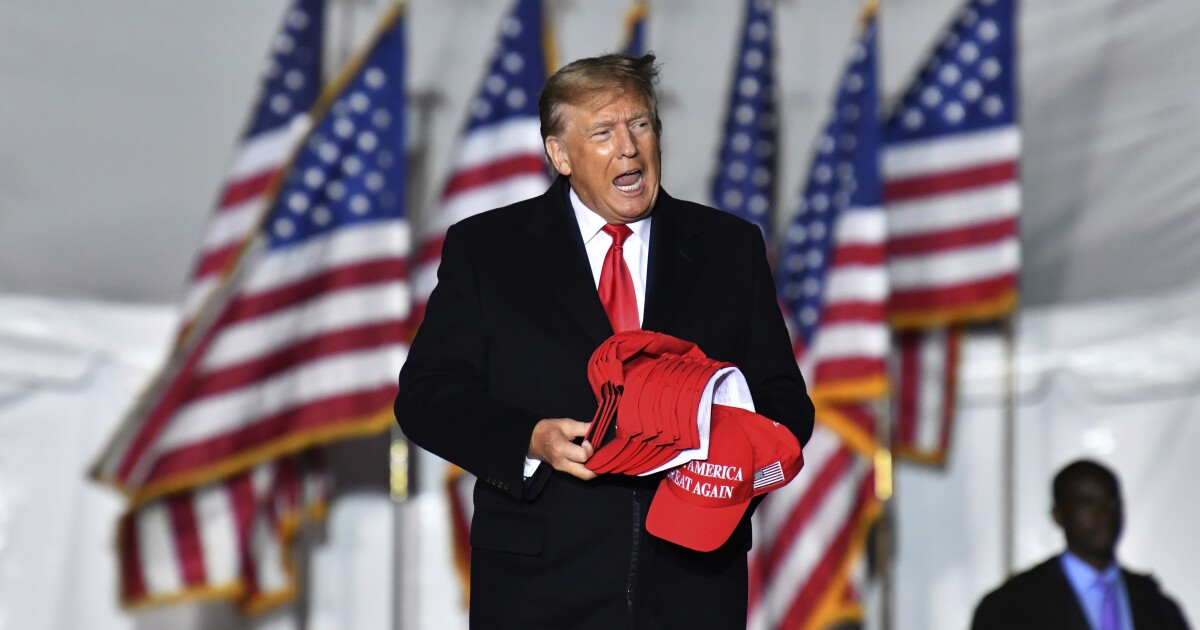

Former President Donald Trump could be in a position next year where he is reelected president, convicted of federal crimes, and able to pardon himself.
But if Trump is convicted of state crimes in New York or Georgia, he would, as president, have little control over the penalties.
UP FOR DEBATE: WHERE TRUMP, DESANTIS, AND REST OF REPUBLICAN 2024 FIELD STAND ON KEY ISSUES
The 2024 Republican front-runner faces 40 counts in the federal case in Florida related to classified documents, four counts in the federal case in Washington, D.C., related to the 2020 election, and 34 counts in the local case in Manhattan related to hush money payments.
In Georgia, Fulton County District Attorney Fani Willis is widely expected to present her case against Trump and potentially several others to a grand jury as early as next week. Trump could face charges that include racketeering for seeking to reverse the 2020 election in Georgia, which he lost by a narrow margin.
At present, he could see a maximum penalty of several hundred years in prison for the current charges against him if convicted, though judges would determine the appropriate sentence.
Jonathan Turley, a law professor at George Washington University, noted that Trump should also have a right to the full range of appeal options in each case.
“All of the cases involve novel or controversial elements,” Turley said. “It does not serve the country well to have those lingering questions when a court is ordering the incarceration of a former or sitting president.”
If he does become president again, many legal scholars appear to agree that the Constitution does not limit Trump from pardoning himself of federal convictions, but opinions become more varied on whether he can serve as president while in prison and whether he can therefore issue pardons from behind bars.
None of these scenarios have historic precedent, but regardless of what happens at the federal level, Trump’s powers over the state judicial systems have clear limitations.
In New York, Gov. Kathy Hochul, a Democrat, would have the sole authority to pardon Trump.
In Georgia, Trump would have to apply for a pardon through a five-member state board five years after he has been indicted, convicted, and completed any sentences.
Turley said that, in his view, while the New York prosecution is an “utter mess” and that a conviction would be met with potentially years of “very significant challenges,” Georgia is more of an unknown.
“If Georgia is based largely on the famous phone call with Georgia officials, it would be a relatively weak prosecution,” he said. “The question is whether they have additional witnesses or evidence to present.”
Alan Dershowitz, a retired Harvard Law School professor who has defended a number of controversial clients, including Trump during his first impeachment, echoed Turley’s sentiments while speaking on his podcast the Dershow, this week.
He called the New York case the “worst indictment” he has “ever seen,” but he conceded that Georgia is a “very weak case unless there’s more to it.”
Should he be convicted there, Dershowitz said that one avenue Trump could pursue outside of seeking a pardon through the state board would be to argue the indictment, if it occurs, would be related to a federal election.
“It’s a state indictment about a federal matter,” Dershowitz said. “He might be able to get it dismissed from a state court, saying it’s really a federal matter.”
One final scenario, which would only apply in federal cases, could involve President Joe Biden preemptively pardoning Trump, similar to how President Gerald Ford pardoned President Richard Nixon after Watergate.
However, Biden is unlikely to have an interest in pardoning his political rival, especially while the legal processes in each case are underway.
Dershowitz asked, “Would it be better for America, would it be better to try to unify the country the way President Ford unified the country at great personal sacrifice to himself?”
CLICK HERE TO READ MORE FROM THE WASHINGTON EXAMINER
Dershowitz added, though, that maybe Trump would rather be acquitted than pardoned.
“Pardon implies maybe he was guilty,” he said.




